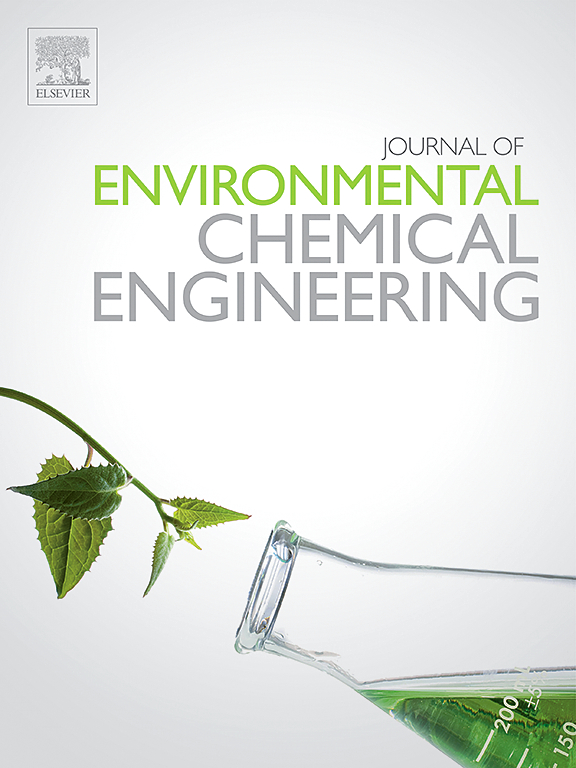Catalytic strategies for CO2 hydrogenation to BTX and p-xylene: A sustainable approach towards carbon neutrality
IF 7.2
2区 工程技术
Q1 ENGINEERING, CHEMICAL
引用次数: 0
Abstract
In recent decades, the substantial rise in atmospheric carbon dioxide (CO2) levels has raised significant environmental concerns, such as global warming and ocean acidification. As a result, reducing carbon emissions and the interest in carbon neutrality have emerged as vital global goals to protect the environment and society. The hydrogenation of CO2 to produce BTX (benzene, toluene, xylene), particularly p-xylene (PX), provides a sustainable pathway for CO2 transformation toward valuable chemical feedstocks. This review presents an overview of the thermodynamics and reaction mechanisms involved in CO2 hydrogenation to BTX and PX, revealing the key factors influencing product selectivity. The effects of catalyst modification methods, including silylation, silicalite encapsulation, core-shell structures, and metal modification, on the selectivity and activity of catalyst are discussed. Factors such as zeolite morphology, catalyst size, contact time, mesoporosity, acidity, and surface alkylation/methylation are analyzed for their effects on BTX and PX selectivity. Lastly, the paper outlines the current challenges and future perspectives in advancing CO2 hydrogenation towards the production of BTX and PX, highlighting opportunities for further research and technological advancements in this area.
二氧化碳加氢制 BTX 和对二甲苯的催化战略:实现碳中和的可持续方法
近几十年来,大气中二氧化碳(CO2)含量的大幅上升引发了全球变暖和海洋酸化等重大环境问题。因此,减少碳排放和实现碳中和已成为保护环境和社会的重要全球目标。二氧化碳加氢生成 BTX(苯、甲苯、二甲苯),特别是对二甲苯(PX),为二氧化碳转化为有价值的化学原料提供了一条可持续的途径。本综述概述了二氧化碳加氢生成 BTX 和 PX 的热力学和反应机理,揭示了影响产品选择性的关键因素。文中讨论了催化剂改性方法(包括硅烷化、硅铝酸盐封装、核壳结构和金属改性)对催化剂选择性和活性的影响。分析了沸石形态、催化剂尺寸、接触时间、介孔度、酸度和表面烷基化/甲基化等因素对 BTX 和 PX 选择性的影响。最后,论文概述了在推进 CO2 加氢以生产 BTX 和 PX 的过程中所面临的当前挑战和未来展望,并强调了该领域进一步研究和技术进步的机会。
本文章由计算机程序翻译,如有差异,请以英文原文为准。
求助全文
约1分钟内获得全文
求助全文
来源期刊

Journal of Environmental Chemical Engineering
Environmental Science-Pollution
CiteScore
11.40
自引率
6.50%
发文量
2017
审稿时长
27 days
期刊介绍:
The Journal of Environmental Chemical Engineering (JECE) serves as a platform for the dissemination of original and innovative research focusing on the advancement of environmentally-friendly, sustainable technologies. JECE emphasizes the transition towards a carbon-neutral circular economy and a self-sufficient bio-based economy. Topics covered include soil, water, wastewater, and air decontamination; pollution monitoring, prevention, and control; advanced analytics, sensors, impact and risk assessment methodologies in environmental chemical engineering; resource recovery (water, nutrients, materials, energy); industrial ecology; valorization of waste streams; waste management (including e-waste); climate-water-energy-food nexus; novel materials for environmental, chemical, and energy applications; sustainability and environmental safety; water digitalization, water data science, and machine learning; process integration and intensification; recent developments in green chemistry for synthesis, catalysis, and energy; and original research on contaminants of emerging concern, persistent chemicals, and priority substances, including microplastics, nanoplastics, nanomaterials, micropollutants, antimicrobial resistance genes, and emerging pathogens (viruses, bacteria, parasites) of environmental significance.
 求助内容:
求助内容: 应助结果提醒方式:
应助结果提醒方式:


